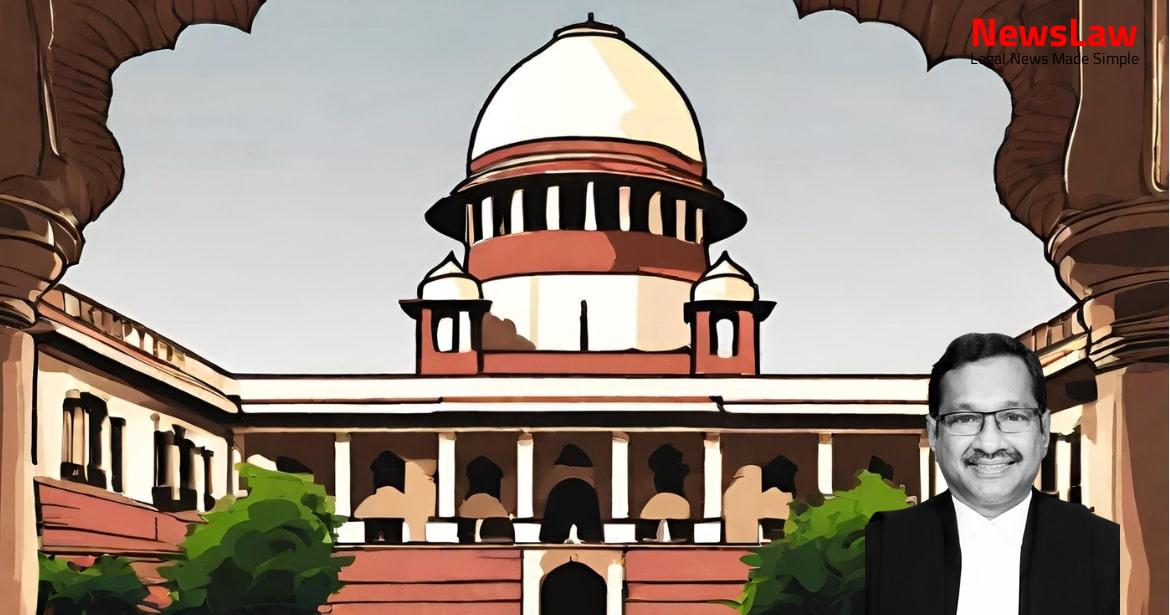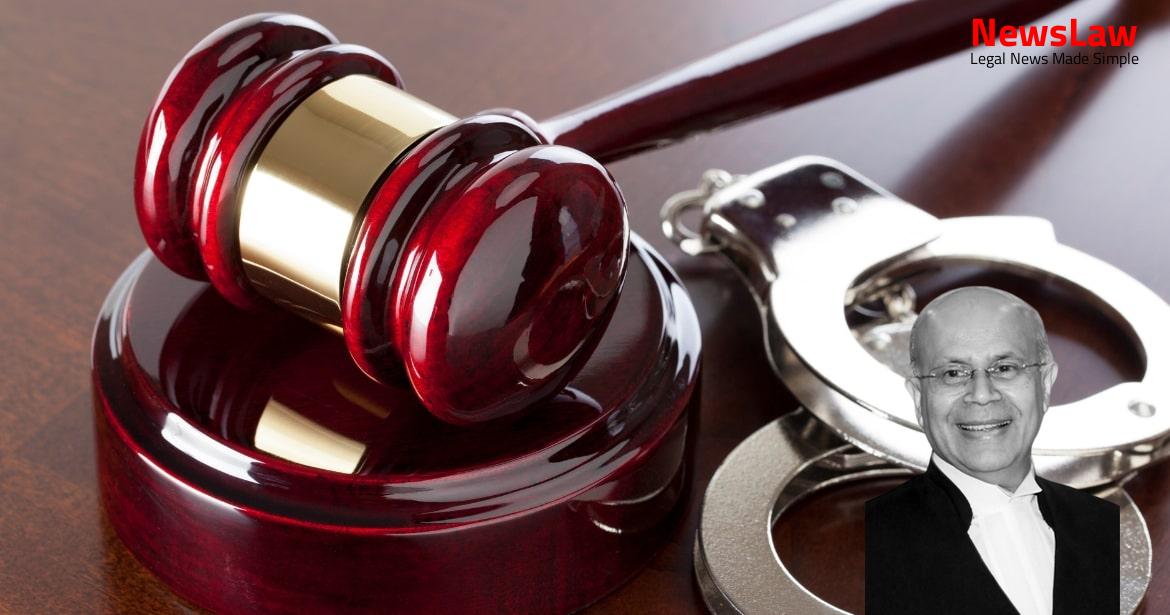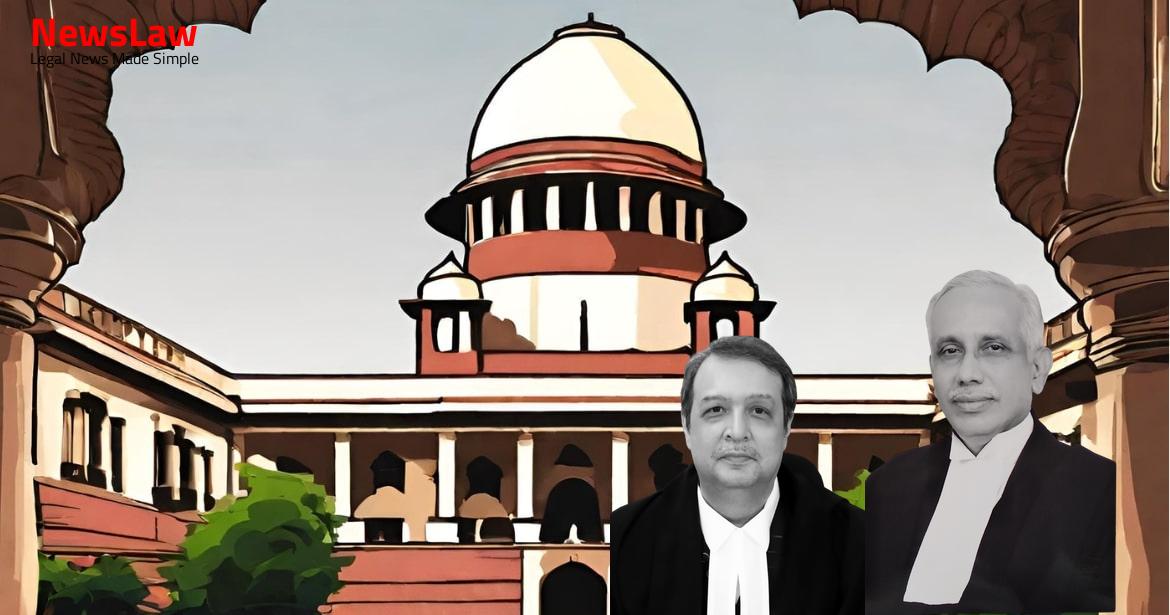Raising the plea of insanity on the mandate of Section 84 of the Indian Penal Code, 1860 (hereinafter ‘the IPC’), the appellant seeks reversal of the order of conviction passed by the Division Bench of the High Court of Bombay at Goa, confirming the order of the Additional Sessions Judge, S.G. – Nothing is an offence which is done by a person who, at the time of doing it, by reason of unsoundness of mind, is incapable of knowing the nature of the act, or that he is doing what is either wrong or contrary to law.” Section 84 of the IPC recognizes only an act which could not be termed as an offence. The aforesaid provision is founded on the maxim, actus non reum facit nisi mens sit rea, i.e., an act does not constitute guilt unless done with a guilty intention. A person of an unsound mind, who is incapable of knowing the consequence of an act, does not know that such an act is right or wrong. Section 84 lays down the legal test of responsibility in cases of alleged unsoundness of mind. The section itself provides that the benefit is available only after it is proved that at the time of committing the act, the accused was labouring under such a defect of reason, from disease of the mind, as not to know the nature and quality of the act he was doing, or that even if he did not know it, it was either wrong or contrary to law then this section must be applied. The law recognizes nothing but incapacity to realise the nature of the act and presumes that where a man’s mind or his faculties of ratiocination are sufficiently dim to apprehend what he is doing, he must always be presumed to intend the consequence of the action he takes…” Section 105 of the Indian Evidence Act 1872 “105. — When a person is accused of any offence, the burden of proving the existence of circumstances bringing the case within any of the General Exceptions in the Indian Penal Code, (45 of 1860), or within any special exception or proviso contained in any other part of the same Code, or in any law defining the offence, is upon him, and the Court shall presume the absence of such circumstances.” The burden of proof does lie on the accused to prove to the satisfaction of the Court that one is insane while doing the act prohibited by law. Though, as a general principle, the onus is upon the person accused to bring his case under the exception, dealing with the case under Section 84 of the IPC, one has to apply the concept of preponderance of probabilities. (2) There is a rebuttable presumption that the accused was not insane, when he committed the crime, in the sense laid down by Section 84 of the Indian Penal Code: the accused may rebut it by placing before the court all the relevant evidence oral, documentary or circumstantial, but the burden of proof upon him is no higher than that rests upon a party to civil proceedings.
Also Read: https://newslaw.in/supreme-court/dismissal-of-application-seeking-bail-relief/
(3) Even if the accused was not able to establish conclusively that he was insane at the time he committed the offence, the evidence placed before the court by the accused or by the prosecution may raise a reasonable doubt in the mind of the court as regards one or more of the ingredients of the offence, including mens rea of the accused and in that case the court would be entitled to acquit the accused on the ground that the general burden of proof resting on the prosecution was not discharged.” This Court in the case of Bapu (supra) has held that: “8. The onus, however, has to be discharged by producing evidence as to the conduct of the accused shortly prior to the offence and his conduct at the time or immediately afterwards, also by evidence of his mental condition and other relevant factors. So, if there is such a restoration, the person concerned can do the act with such reason, memory and judgment as to make it a legal act; but merely a cessation of the violent symptoms of the disorder is not sufficient.” This Court in a recent decision in Devidas Loka Rathod v.
State of Jharkhand (2011) 11 SCC 495 : (2011) 3 SCC (Cri) 232, after which the onus shall shift on the prosecution to establish the inapplicability of the exception.
The crucial point of time for considering the defence plea of unsoundness of mind has to be with regard to the mental state of the accused at the time the offence was committed collated from evidence of conduct which preceded, attended and followed the crime as observed in Ratan Lal v. Chapter XXV of the Code of Criminal Procedure 1973 (hereinafter ‘Cr.P.C.’), though procedural in nature, also becomes substantive when it deals with an accused person of unsound mind.
Having noted the scope and ambit of Chapter XXV of Cr.P.C., including the provisions incorporated by way of amendments in the year 2009, one has to take into account the fact that the Court has a larger role to play while considering the case under Section 84 of the IPC. A mental illness that requires institutional care or administration of therapeutic care for medical insanity may not still be sufficient insulate the person from consequences of a criminal act and punishment if s/he is not legally insane. In many a foreign jurisdiction, the questions may vary depending on the nature of proof of insanity and its intensity that is relevant under law to appraise criminal responsibility for the act: Could there have been an irresistible impulse to commit the act charged with? Along with these sources, the role of delusions in evaluations of criminal responsibility (as the nature and quality of the accused ‘delusionality’) is often central in determining the extent of impairment in mental state at the time of the offence, especially in contested cases that may have a bearing on limiting responsibility if not completely exonerating him from the offence charged with. Rather, the role of examiner, as expert, is to import state of-the-art/science knowledge about the existence of various psychopathological conditions and their relationship to various behavioural, perceptual, cognitive and judgmental capacities into the legal/moral decisional process.” SCHIZOPHRENIA 19.
The term dementia praecox was changed because it implied that the disease always ended in dementia, which it did not. 87
“Schizophrenia spectrum and other psychotic disorders include schizophrenia, other psychotic disorders, and schizotypal (personality) disorder. He took the material object and came out of the shop and went to the bus stand. Two doctors were examined as AWs 1 and 2, for the fact that he was indeed suffering from schizophrenia. However, the evidence of the Government doctor who deposed as AW1 and DW1 was brushed aside, so also the evidence of DW2, who was the uncle of the accused, and clearly spoke about the earlier treatment received by the accused.
We may also add that this report merely records the statements of the doctors who have not been examined before the Court. The order dated 25.07.2006 of the trial court of conviction and sentence of the appellant punishable under Section 302 of the IPC and the judgment and order dated 02.06.2008 of the High Court affirming the same are set aside. SUNDRESH) New Delhi, 12 January, 2023 ITEM NO.104/1 COURT NO.8 SECTION II-A S U
P R E M E C
O U R T
O F
I N D
Case Title: PRAKASH NAYI @ SEN Vs. THE STATE OF GOA (2023 INSC 24)
Case Number: Crl.A. No.-002010-002010 / 2010



